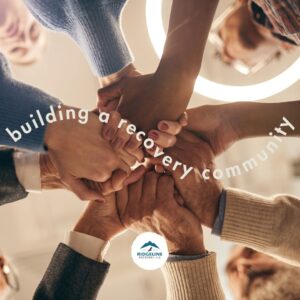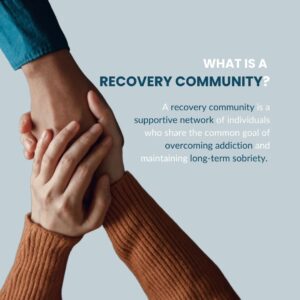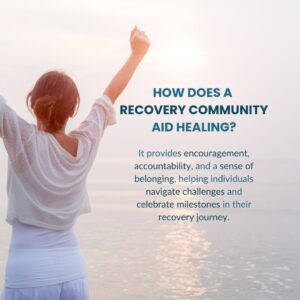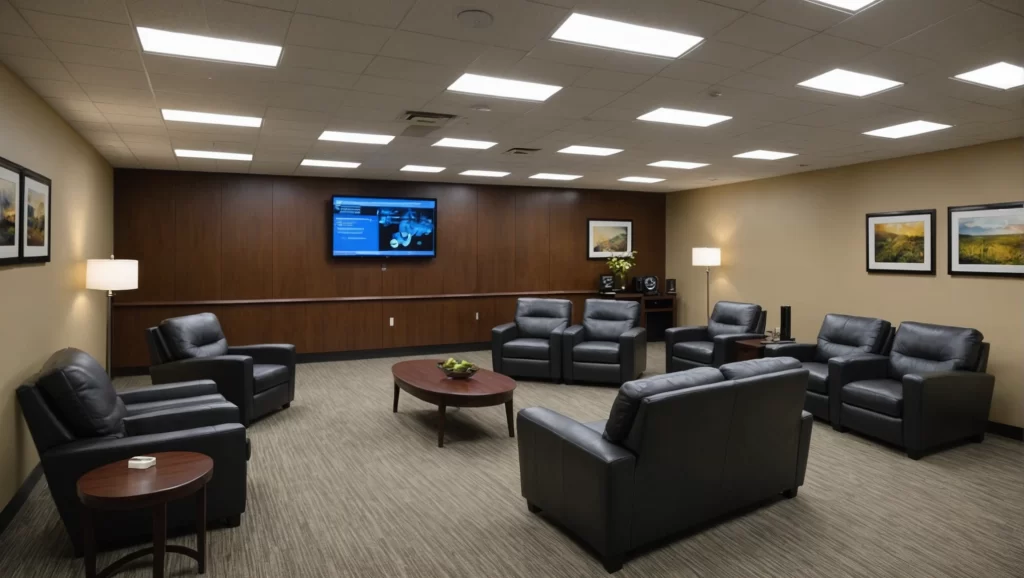When you’re fighting for your life back, you can’t do it alone. Recovery is brutal sometimes. But when you have the right people around you, everything changes. That’s the power of a recovery community.
In this article, we’ll break down what a recovery community actually does, why it matters, and most importantly—how to build one that’s strong enough to help you heal and win.

Why Recovery Communities Matter
Let’s be real. Healing from addiction is hard. Mental health struggles don’t just vanish overnight. You need people who get it. You need people who want you to win.
A recovery community is like your safety net. It catches you when life punches you in the face. It’s not just about talking—it’s about belonging. It’s about having a crew that reminds you: you’re not broken. You’re human.
When you have a strong recovery community, you heal faster. You stay stronger. You feel seen. You stay alive.
That’s why places like Ridgeline Recovery focus so much on building support systems alongside our addiction recovery programs. We know you can’t white-knuckle your way through healing. You need real backup.

How a Recovery Community Aids in Healing
You can have the best doctors, the best addiction therapy, the best meds—but if you feel alone, it’s a battle you’ll probably lose.
Healing isn’t just about your body getting better. It’s about your heart and mind believing it’s possible.
Here’s how a recovery community fuels real healing:
1. You Don’t Feel Alone Anymore
Addiction isolates you. Depression convinces you no one cares. Anxiety makes you think you’re a burden.
A community shatters those lies.
When you show up and someone actually smiles at you, remembers your name, and checks in? It reminds your brain that connection is real.
It’s a life raft when everything else feels like it’s sinking.
2. You Build New, Healthy Habits
Here’s the thing: addiction thrives in bad environments. If you hang around the same people, doing the same things, nothing changes.
A recovery community gives you new patterns.
Instead of hitting a bar after work, maybe you hit a support group. Instead of numbing out alone, you text someone from your group who actually gets it.
New habits = new life.
3. You Get Accountability Without Shame
No one in a good recovery community shames you for messing up.
Instead, they call you out because they love you. Big difference.
Accountability sounds like:
“Hey man, you said you wanted to stay sober. What’s going on?”
Not:
“You’re such a failure for drinking again.”
The right group doesn’t beat you down. They build you up.
4. You See Proof That Recovery Works
Sometimes your brain needs proof. You need to see someone who was where you are—and is now doing better.
You need someone to say,
“Yeah, I was exactly where you are. I didn’t believe I could change either. But look at me now.”
That proof plants hope.
And hope is one of the most powerful fuels for healing.

How to Build a Strong Recovery Community
You might be thinking: “Okay, cool, I get why a community matters. But how do I actually build one?”
Good news: it’s not complicated. But it does take effort.
Here’s how to do it:
1. Start Small
You don’t need a stadium full of people.
Start with one person. Then two. Then three.
Find one other human who wants to grow, heal, and stay alive just as much as you do.
If you’re part of a program like addiction treatment, lean into it. Say hi to the people in your group. Share your story. Listen to theirs.
One real connection is worth more than 100 fake ones.
2. Create Consistency
Healing loves structure.
Set up regular meetups. Maybe it’s a weekly coffee hangout. Maybe it’s a support group every Thursday night.
Doesn’t have to be fancy. It just has to be consistent.
Consistency builds trust. Trust builds connection. Connection builds life.
3. Focus on Honesty
Fake recovery communities don’t help anyone.
Be real. Be messy. Tell the truth.
If you’re struggling, say it. If you’re doing great, celebrate it.
When honesty is normal, healing speeds up.
4. Set Boundaries
This one’s huge.
Not everyone who shows up will be healthy. Some people might try to drag you down or trigger old habits.
That’s why boundaries matter.
You’re allowed to say:
“I care about you, but I can’t be around you when you’re high.”
Healthy communities protect the space so everyone can heal.
5. Mix In Fun
Recovery isn’t just about surviving—it’s about living.
Plan fun stuff together. Go hiking. Watch movies. Play board games. Host sober parties.
Laughter is medicine too.
A strong recovery community doesn’t just help you not die—it helps you actually live.
What a Strong Recovery Community Looks Like
You’ll know you’re part of a real recovery community when you see stuff like this:
-
People celebrate your wins without jealousy.
-
People check on you when you disappear.
-
You feel seen, not judged.
-
Mistakes aren’t death sentences.
-
Growth is normal.
-
Love is normal.
If you find a space like that? Protect it. Grow it. Invite others into it.
Challenges in Building a Recovery Community (And How to Beat Them)
Let’s not pretend this is easy. Building a strong community has its struggles.
Here’s what might come up—and how to smash through it.
1. Trust Issues
You’ve been burned before. Maybe by family. Maybe by fake friends.
It’s normal to be scared to trust again.
But healing requires some risk. Start small. Open up little by little. Let people prove themselves.
Not everyone will hurt you.
2. Flaky People
Some people say they’re committed—and then ghost.
Don’t take it personally. People are messy. Especially when they’re hurting.
Keep showing up anyway. The right ones will stick.
3. Conflict
Arguments happen. Misunderstandings happen.
The key? Talk it out. Don’t let resentment rot the group from the inside.
You’re all fighting the same battle. Remember that.
Why Ridgeline Recovery Believes in Community
At Ridgeline Recovery, we know healing isn’t a solo sport.
That’s why our programs focus on building real, lasting connections—from addiction recovery to addiction therapy, to full-on addiction treatment.
We’ve seen it firsthand. When people feel supported, they recover faster. They stay sober longer. They actually believe they deserve a better life.
And when you’re ready to take the next step, don’t wait. Contact us today. Real help is here.
You Were Never Meant to Do This Alone
Addiction and mental health struggles are brutal. But they don’t get the final word.
You are not broken beyond repair. You are not too far gone.
You are human—and humans heal in connection.
So find your people. Build your community. Fight for your life with the right crew beside you.
And remember: asking for help doesn’t make you weak. It makes you wise.
Your future deserves a community that believes in it.



